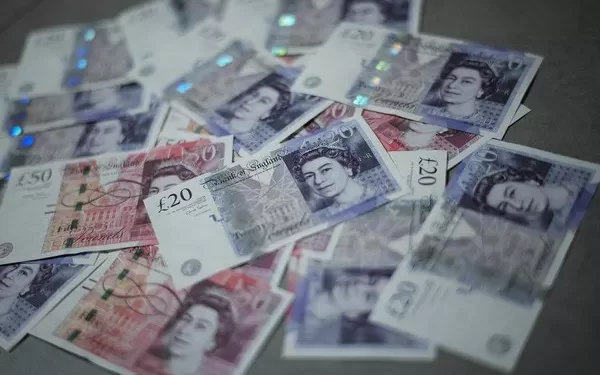The Bank of England, as the central bank of the United Kingdom, is a pivotal institution in the nation’s financial system. Its operations and mechanisms are of great interest to economists, policymakers, and the general public. A central question often posed is: “Who lends money to the Bank of England?” Understanding this question requires a deep dive into the structure of the central bank, the mechanisms of central banking, and the role of various stakeholders in the financial ecosystem.
The Bank of England was established in 1694 and has since evolved into one of the world’s leading central banks. Its primary functions include issuing currency, managing the country’s gold and foreign exchange reserves, supervising the financial system, and acting as a lender of last resort to financial institutions. The Bank’s primary mandate is to maintain monetary and financial stability.
Central Bank Operations and Liquidity Management
Central banks, including the Bank of England, engage in various operations to manage liquidity within the financial system. These operations are crucial for ensuring that the banking system functions smoothly, and that there is sufficient liquidity to meet the needs of the economy.
Open Market Operations (OMOs)
One of the primary tools for managing liquidity is Open Market Operations (OMOs). Through OMOs, the Bank of England buys or sells government securities in the open market to either inject liquidity into the banking system or to absorb excess liquidity. When the Bank purchases securities, it credits the reserve accounts of commercial banks, effectively increasing the amount of money they have available to lend. Conversely, when it sells securities, it debits these reserve accounts, reducing available liquidity.
Standing Facilities
The Bank of England also provides standing facilities, which allow commercial banks to borrow money overnight at a penalty rate. This facility serves as a safety net for banks, ensuring that they have access to liquidity even when market conditions are tight. These facilities include the Marginal Lending Facility, which provides overnight credit to banks against eligible collateral.
The Role of Commercial Banks and Financial Institutions
Commercial banks and other financial institutions play a critical role in the Bank of England’s operations. These institutions are both counterparties in the Bank’s monetary policy operations and significant sources of funds.
Reserve Accounts
Commercial banks hold reserve accounts at the Bank of England. These reserves are part of the overall liquidity management framework. Banks are required to hold a certain amount of reserves to meet regulatory requirements and to facilitate settlement of interbank transactions. The Bank of England pays interest on these reserves, which serves as a tool for monetary policy.
Repos and Reverse Repos
Repos (repurchase agreements) and reverse repos are another mechanism through which the Bank of England interacts with commercial banks. In a repo transaction, the Bank of England lends money to a commercial bank against collateral, typically government securities, with an agreement to repurchase the securities at a later date. This provides short-term liquidity to banks. Reverse repos work in the opposite manner, allowing the Bank to absorb liquidity.
The Role of the Government and Treasury
The UK government, particularly the Treasury, is also intricately linked with the Bank of England’s operations. The relationship between the Bank and the Treasury involves various mechanisms through which funds are transferred and managed.
Government Debt Management
The Bank of England acts as an agent for the Treasury in managing the issuance of government debt. When the government issues bonds, it raises funds from investors, which are then deposited with the Bank of England. This process involves close coordination to ensure that the issuance of debt aligns with the monetary policy objectives.
Ways and Means Facility
The Ways and Means Facility is an overdraft facility that the Treasury holds at the Bank of England. This facility allows the government to borrow short-term funds from the Bank to meet its cash flow needs. Although the use of this facility has diminished in recent years, it remains a potential source of funding for the government.
See Also:What Does the Bank of England Do?
International Institutions and Foreign Central Banks
International institutions and foreign central banks are also lenders to the Bank of England in various capacities.
Foreign Exchange Reserves
The Bank of England holds significant foreign exchange reserves, which are used to manage exchange rates and to intervene in the foreign exchange market when necessary. These reserves are partly funded by international institutions and foreign central banks through currency swaps and other arrangements.
International Monetary Fund (IMF)
The Bank of England participates in the activities of the International Monetary Fund (IMF). The IMF can provide funds to the Bank through special drawing rights (SDRs) or other facilities, which can be used to bolster the UK’s foreign exchange reserves or to provide liquidity support.
The Role of the Public and Private Sector Entities
Beyond financial institutions and governments, other private sector entities and the public indirectly lend money to the Bank of England.
Savings and Investments
When individuals and corporations deposit money in commercial banks, these deposits become part of the broader monetary base managed by the Bank of England. Commercial banks, in turn, lend these funds to the Bank through various monetary policy operations.
Institutional Investors
Institutional investors, such as pension funds and insurance companies, purchase government securities and other financial instruments. These purchases indirectly fund the operations of the Bank of England by providing liquidity to the financial system and supporting the government’s borrowing needs.
The Bank’s Balance Sheet and Financial Statements
A central aspect of understanding who lends to the Bank of England is analyzing its balance sheet and financial statements. These documents provide detailed insights into the sources and uses of funds.
See Also:Is Bank of England Private or Public?
Assets and Liabilities
The Bank of England’s balance sheet lists its assets and liabilities, highlighting the various sources of funds. Key liabilities include the reserves held by commercial banks, government deposits, and other borrowings. Assets typically include government securities, foreign exchange reserves, and loans to financial institutions.
Capital and Reserves
The capital and reserves section of the balance sheet reflects the equity of the Bank of England. This includes retained earnings and other reserves that serve as a buffer against potential losses. The financial health of the Bank is crucial for maintaining confidence in its ability to manage the monetary system.
Conclusion
The question of who lends money to the Bank of England is multifaceted, involving various stakeholders within the financial system. Commercial banks, the government, international institutions, and private sector entities all play crucial roles in providing funds to the Bank through different mechanisms. Understanding these relationships is essential for comprehending the broader dynamics of the UK’s monetary system and the pivotal role of the Bank of England in maintaining financial stability.
The intricate web of financial transactions, reserves, and policies underscores the complexity of central banking and highlights the importance of coordination and transparency in managing a nation’s economy. The Bank of England’s ability to function effectively hinges on the trust and cooperation of these diverse entities, making it a cornerstone of the UK’s financial infrastructure.
Related Topics:

























